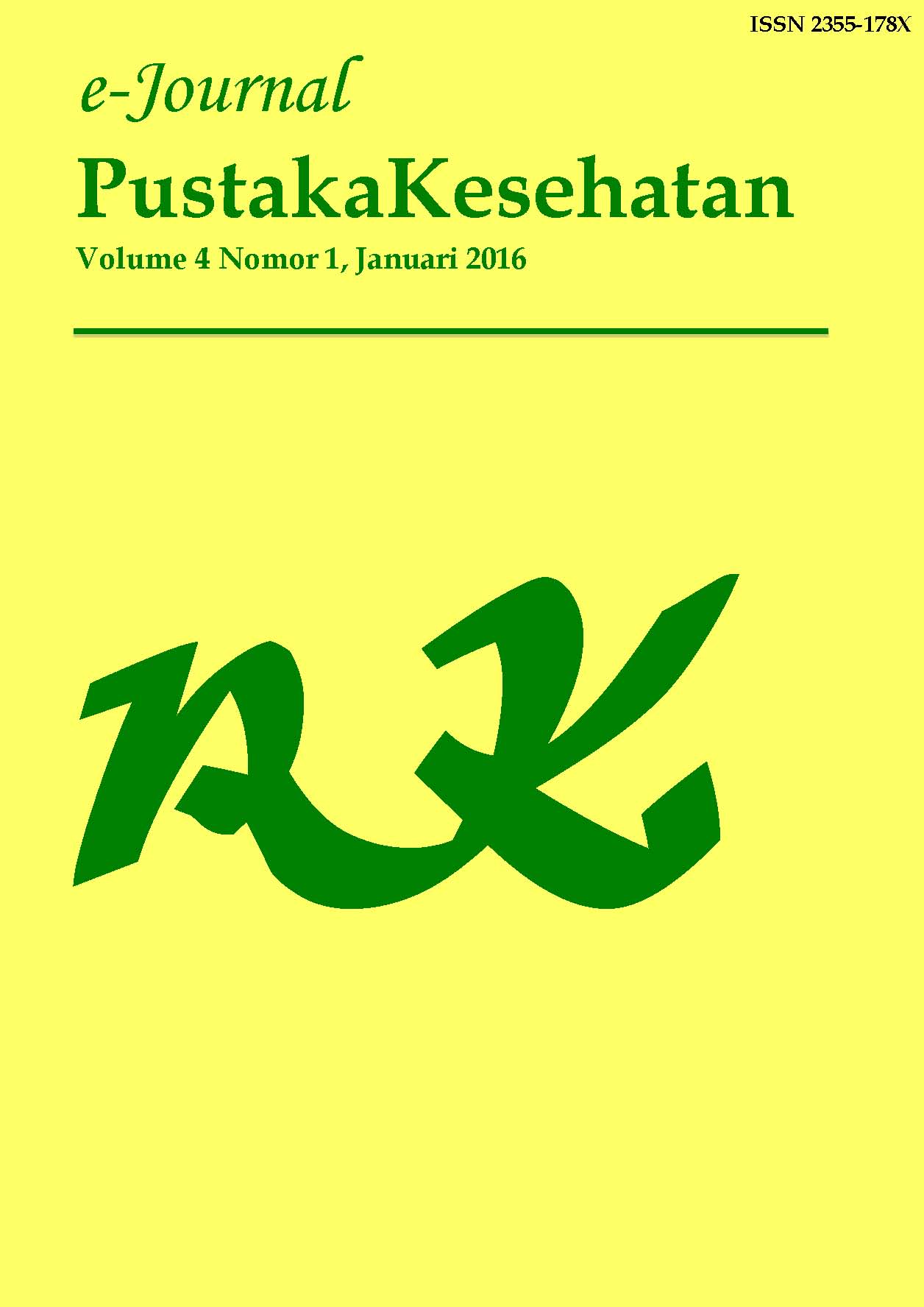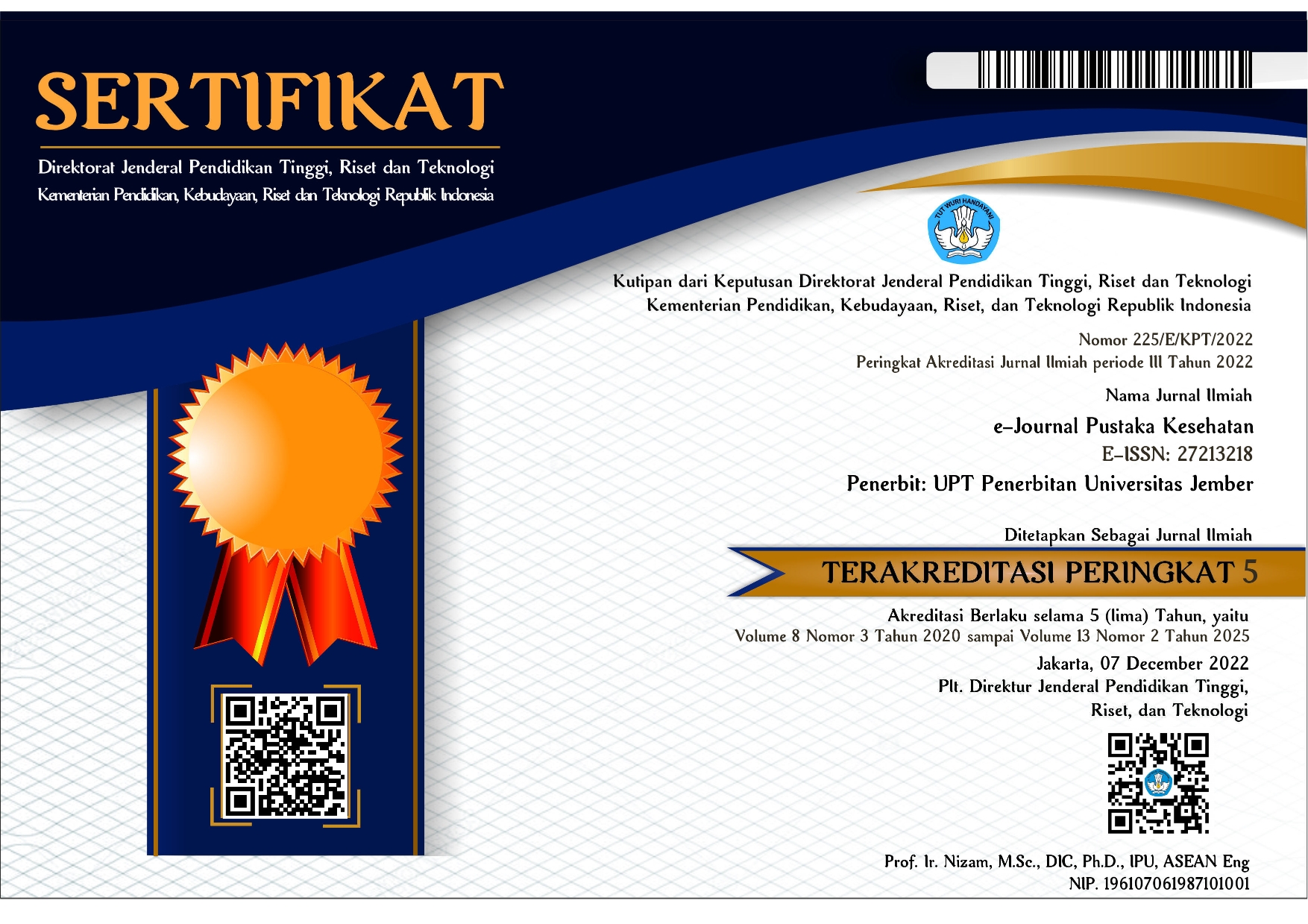Pengaruh Induksi Racun Ubur-Ubur (Physalia utriculus) terhadap Fungsi Oksigenasi dari Eritrosit pada Mencit Jantan
Abstract
Jellyfish is one of the animals that is responsible for poisoning in human. The poisoning jellyfish commonly found is Physalia utriculus. Jellyfish poison is potential to cause hemolysis on blood. The purpose of this study was to determine the influence of jellyfish (Physalia utriculus) poisoning induction toward the oxygenation function of the male mice erythrocytes. The method was true experimental design with post test only control group design. Eight male mice were devided into two groups: control and treatment groups with a dose of jellyfish poison 30 mg/kgBW. The observation was conducted by using a pulse oxymeter. The result showed average level of oxygen saturation in the control group minute 0; 15; 30; 60; 120; 240; 480; 720; 1440 were 55%; 54%; 63,75%; 70%; 65,25%; 67,5%; 65,75%; 72%; 55%, respectively. While in the treatment group were 61,25%; 62,75%; 59,75%; 58,5%; 51,75%; 58%; 57%; 75,75%; 47%, respectively. The statistical bivariate correlation test has a correlation coefficient value (r) 0,383. The significance value is (p) 0,309 (p>0,05). The conclusions of this study was jellyfish (Physalia utriculus) poisoning induction has no significant effect toward the change of oxygenation function of the male mice erythrocytes.
Keywords: jellyfish, jellyfish poison (Physalia utriculus), erythrocytes, oxygen saturation
Downloads
Downloads
Published
Issue
Section
License
e-Journal Pustaka Kesehatan has CC-BY-SA or an equivalent license as the optimal license for the publication, distribution, use, and reuse of scholarly work. Authors who publish with this journal retain copyright and grant the journal right of first publication with the work simultaneously licensed under a Creative Commons Attribution-ShareAlike 4.0 International License that allows others to share the work with an acknowledgment of the work's authorship and initial publication in this journal.







